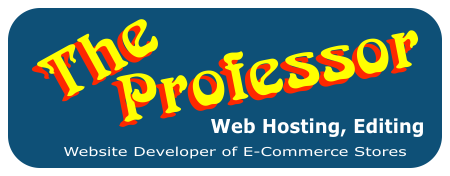09 Jul


Posted By
0 Comment(s)
1849 View(s)
Website Developer Help and Tuition
,
On Page SEO, Editing website.
Understanding and effectively using keywords is crucial for SEO
(Search Engine Optimization), digital marketing, content creation, and more. Here’s a guide to help you find and use keywords effectively:Finding Keywords
Brainstorming:
- Think about the main topics related to your business or content.
- Consider what terms people might use to search for your products or services.
Use Keyword Research Tools:
- Google Keyword Planner: A free tool that provides keyword ideas and search volume data.
- Ahrefs: A comprehensive tool for keyword research, backlink analysis, and more.
- SEMrush: Offers insights into keyword difficulty, search volume, and competitors' keywords.
- Moz Keyword Explorer: Provides keyword suggestions, search volume, and difficulty scores.
- Ubersuggest: A free tool that provides keyword ideas, search volume, and SEO difficulty.
Analyze Competitors:
- Look at the keywords your competitors are targeting. Tools like Ahrefs and SEMrush can help with this.
Use Google Suggestions:
- Type your main keyword into Google and look at the autocomplete suggestions.
- Check the “People also ask” and “Related searches” sections for more ideas.
Forums and Q&A Sites:
- Visit sites like Quora, Reddit, and industry-specific forums to see what questions people are asking.
Customer Feedback:
- Ask your customers directly or through surveys what terms they use to describe your products or services.
Using Keywords Effectively
On-Page SEO:
- Title Tags: Include your main keyword in the title tag.
- Meta Descriptions: Use keywords in the meta description, but make sure it reads naturally.
- Headings (H1, H2, H3): Use keywords in your headings to structure your content.
- Content: Naturally integrate keywords into your content without keyword stuffing. Aim for a keyword density of about 1-2%.
- URL Slug: Include your main keyword in the URL.
- Alt Text: Use keywords in the alt text for images.
Content Creation:
- Blog Posts: Write in-depth articles focused on your main keywords.
- FAQs: Create a FAQ section on your website targeting common queries related to your keywords.
- Product Descriptions: Use keywords in product descriptions for e-commerce sites.
- Videos: Optimize video titles, descriptions, and tags with keywords.
Internal Linking:
- Link to other relevant pages on your website using anchor text that includes keywords.
Backlinks:
- Acquire backlinks from other reputable websites. Use keywords in the anchor text of these links where possible.
Local SEO:
- If you have a local business, use local keywords (e.g., “best pizza in New York”).
- Create and optimize your Google My Business listing with local keywords.
Monitor and Adjust:
- Use tools like Google Analytics and Search Console to track the performance of your keywords.
- Adjust your strategy based on what’s working and what’s not.
By following these steps, you can effectively find and use keywords to improve your SEO and reach your target audience more efficiently.
*Related Articles: /seo-check-list

Leave a Comment